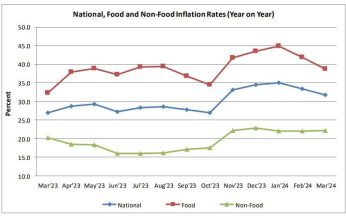‘Businesses to thrive with Thyolo-Bangula road’
Long at last. The construction works of the long-awaited Thyolo-Thekelani-Muona-Bangula road which stalled for 11 years will resume in two weeks, Minister of Transport and Public Works Malison Ndau has said.
The 92-kilometre (km) road which will connect Thyolo Highlands to the agriculture-rich Shire River’s East Bank in Chikwawa-Nsanje is expected to be completed in 2019.

Ndau said government has engaged Mota-Engil who is set to roll-out the project once logistics on payment of advanced working capital are finalised.
“This road is among my ministry’s priority and I pledged to see to it that the project materialises,” he said.
He said when completed, the $64 million (K44.8 billion at the current exchange rate) project is expected to easy transport challenges of farm inputs and produce to and from various markets as the road passes through banana, tea and maize growing area.
The road will also act as an alternative route to Nsanje besides the M1 road.
Initially, the project, co-financed by the Saudi Fund for Kuwait Fund for Arab Economic Development (KFAED), Opec Fund for International Development (OFID), Arab Bank for Economic Development in Africa (Badea) and the Malawi government was planned to commence in 2005 but stalled due to a series of contractual disagreements.
In June 2008, then president Bingu wa Mutharika presided over the ground breaking ceremony to mark the beginning of the project but it failed to rollout after government suspended a contract with the contractor due to funding constraints.
After a series of negotiations and following commitment of funding organisations, an agreement was reached to restart the project and it restarted in 2013.
However, the available funds could only cover about 39 km up to close to Muona trading centre, this contract was also terminated in January 2015 due to what government called contractor’s breach of obligation as the contractor subcontracted 100 percent of the on-going works contrary to the General Conditions of Contract (GCC) which stipulated that only 30 percent of the contract price could be subcontracted.
According to the then Minister of Transport and Public Infrastructure Francis Kasaila, government was also unhappy with the contractor’s performance as instead of executing the whole project in a period of 36 months, 6.5 years passed without significant progress on the ground.
According to the Roads Authority (RA), close to $21 million (K15 billion) has so far been spent on the project as a settlement payment for contractor leaving a balance of $43 million (K30 billion) from the value of the original contract sum. n





